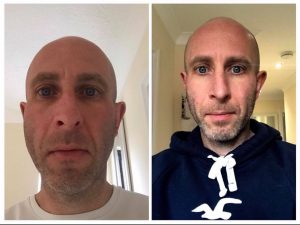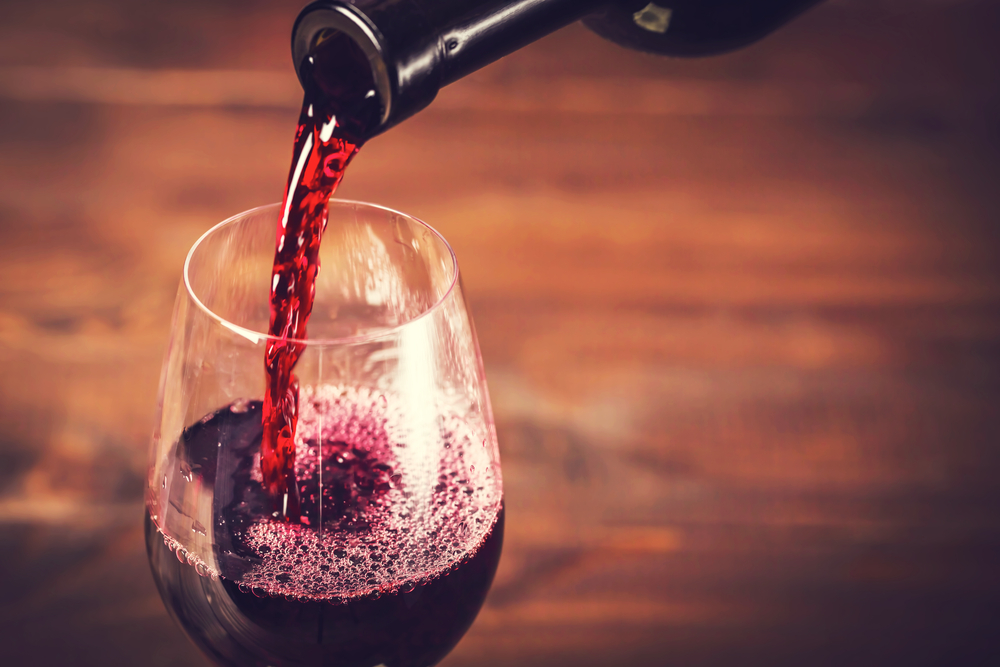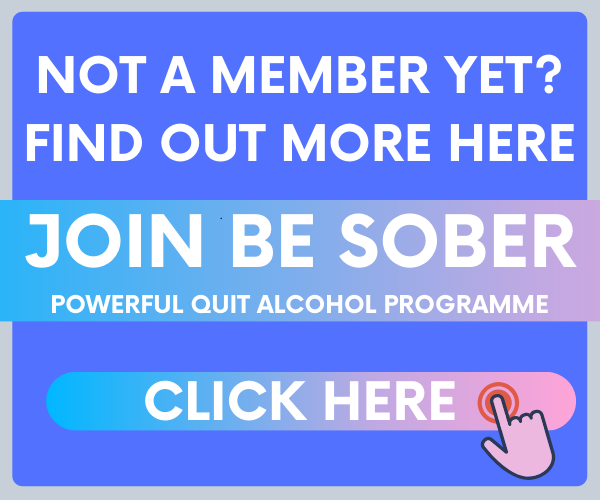With Christmas just around the corner comes a time when many of us like to over-indulge. This can mean drinking a lot more alcohol than usual.
I remember how I used to use the festive period as an excuse to buy much more red wine that I would normally have (as if I wasn’t having enough already!). I wasn’t having to get up for work due to the holidays and I saw this time of year as a chance to relax, to me this meant drinking even more every evening.
As December turned into January I faced up to each new year with a sense of regret and shame about how much I had drunk. There would be articles all over social media and in the news about resolutions for the new year and cutting back on drinking, every time I saw one I scrolled past quickly to avoid the pang of discomfort I would feel as it reminded me about my drinking problem that I was so very aware of.
So, I carried on drinking, it seemed like the only way to stop worrying. I truly believed alcohol was the key to calming my anxiety and as stupid as it sounds, stopping me stressing about how much I was drinking.
However, the relief was only short-lived. Yes, the booze made me forget for a few hours, but it never dealt with the problem and I still had to face up to the fact that I was drinking way too much. Worst of all, the ‘facing up’ was usually first thing the next morning with a fuzzy mind and a thumping headache.
However, there were several years where the internal conflict in my mind became so bad that I decided to make a new years resolution to try and quit drinking. This period without booze generally lasted no more than 24-48 hours before I crumbled and was back on the wine again. I have heard the same thing time and time again, that quitting alcohol as a new years resolution rarely works, so why is this?
My belief is that resolutions tend to be mostly about willpower and willpower acts a bit like a muscle, over time it wears out and we often return to our old habits and behaviours. Instead of relying on (limited) resources of willpower it is far better to work on changing the way you think about alcohol. If you can change your mindset you can find complete freedom.
That is not to say that resolutions don’t work for some people. But in the vast majority of cases they fail, rather than white-knuckling it with gritted teeth, it is far better to get to a place of peace and freedom where you can simply say to yourself ‘I have no desire to drink alcohol’.
Eventually after years of knowing I had a problem and not knowing what to do about it I got to a point where I was sick and tired of being caught in the alcohol trap. I needed to make a change.
I quit alcohol forever and below I share my tips on how you can do the same if that is what you want. I could have waited until the next New Year and made yet another resolution, but I was ready and I didn’t want to wait. I was excited to discover what awaited me in a life without alcohol and decided the time was right.
If you are reading this and feel like it is time to make a change I hope my tips below will get you on the path to freedom.
10 Tips to change your relationship with alcohol
Tip 1
As I mentioned, you need to change your mindset about alcohol so your thinking changes from ‘can’t have’ a drink to ‘don’t want’. The way I did this was by reading sober books, This Naked Mind by Annie Grace was a game-changer for me and I would highly recommend reading this ASAP, by the end of the book there is a good chance you simply won’t want to drink any longer. Also check out my own book The Sober Survival Guide which is full of tactics and support to help anyone who is on the journey to freeing themselves from alcohol.
Tip 2
The first 30 days can be the hardest period, I signed up to the free 30 day Alcohol Experiment at www.thealcoholexperiment.com – it works with you day by day and supports you as you go forward. You are given video tutorials, an online journal and a wealth of information, tools and help to really make you feel engaged. Make sure you check in every single day and complete everything that is asked of you.
Quitting drinking is a bit like learning a new skill, it takes a work and practice, but over time and with the right training and support you can master it.
It is also worth getting a sobriety counter app, so you can count the days, although some people are not so keen on these.
Tip 3
Join up to a couple of Facebook sober groups, you will find other people on the same journey who will give you support, inspiration and encouragement. The Be Sober Facebook group is private and a fantastic place to find a caring community of sober warriors.
Join the Be Sober private Facebook group here: https://www.facebook.com/groups/1960061840706240
Tip 4
Arm yourself with plenty of alcohol free alternative drinks. There are so many available and part of the fun is exploring all the new tastes and finding a new grown-up drink to fill the void where you once drank alcohol. Check out Caleno, Atopia and Borrago mixed with tonic water and a slice of lime as a start point.
Tip 5
Pour away your alcoholic drinks, you don’t want them in the house.
Tip 6
Avoid temptation, I avoided any alcohol based events for the first few weeks after I quit drinking. I was determined to make a change and didn’t want to be in a place where I was tempted to drink. As you grow stronger you will find alcohol becomes insignificant and unimportant to you and you won’t be phased or tempted to drink, no matter what event you attend.
Tip 7
Be passionate. I had read about all the wonderful and positive life changes that come with an alcohol-free life and it made me feel really motivated and excited about the journey ahead. If I had approached quitting drinking with a sense of loss and deprivation the experience may have been very different. Try and reframe your thinking so you have a positive outlook about the amazing change you are making to become a better version of yourself.
Tip 8
Don’t worry if you slip-up and have a drink. As I mentioned, nobody was perfect at something new the first time around and it takes a bit of practice. So be gentle with yourself and more importantly instead of reacting emotionally if you have a drink use it as a data point to learn more about yourself and why you drank. What triggered it? How did it feel when you drank? What could you do in the future to prevent it happening again?
Tip 9
Stay engaged and journal everything. As you go forward continue to interact in sober groups and try and make yourself accountable so people know what you are doing. Write down as much as you can, this allows you to really dig into the data and see the changes that are happening to your mind and your body. I also recommend taking a selfie before you quit and comparing the changes in your face and body at 30 day intervals, when you see the improvements it can really spur you on.
Take a selfie, this was mine – Day 1 on the left and after 16 months alcohol-free on the right.
Tip 10
Find new things to do with your time, I calculated how much time I was spending per week drinking and realised when I quit that I was going to have a lot of extra time on my hands. Rather than sit around pining for your lost friend get out into the big wide world, take up a new hobby or just go for a long walk in nature. You can create a natural endorphin boost when you do something that increases your heart rate and it is an excellent way to wash away any worries and return home feeling alive and refreshed.
In Conclusion
Quitting drinking at any time of year can feel scary. But it really isn’t as hard as you might think, with the right mindset, tactics and support you can free yourself from alcohol forever. Use the tips above if you want to start moving towards a booze free life and I wish you every success on the journey.







